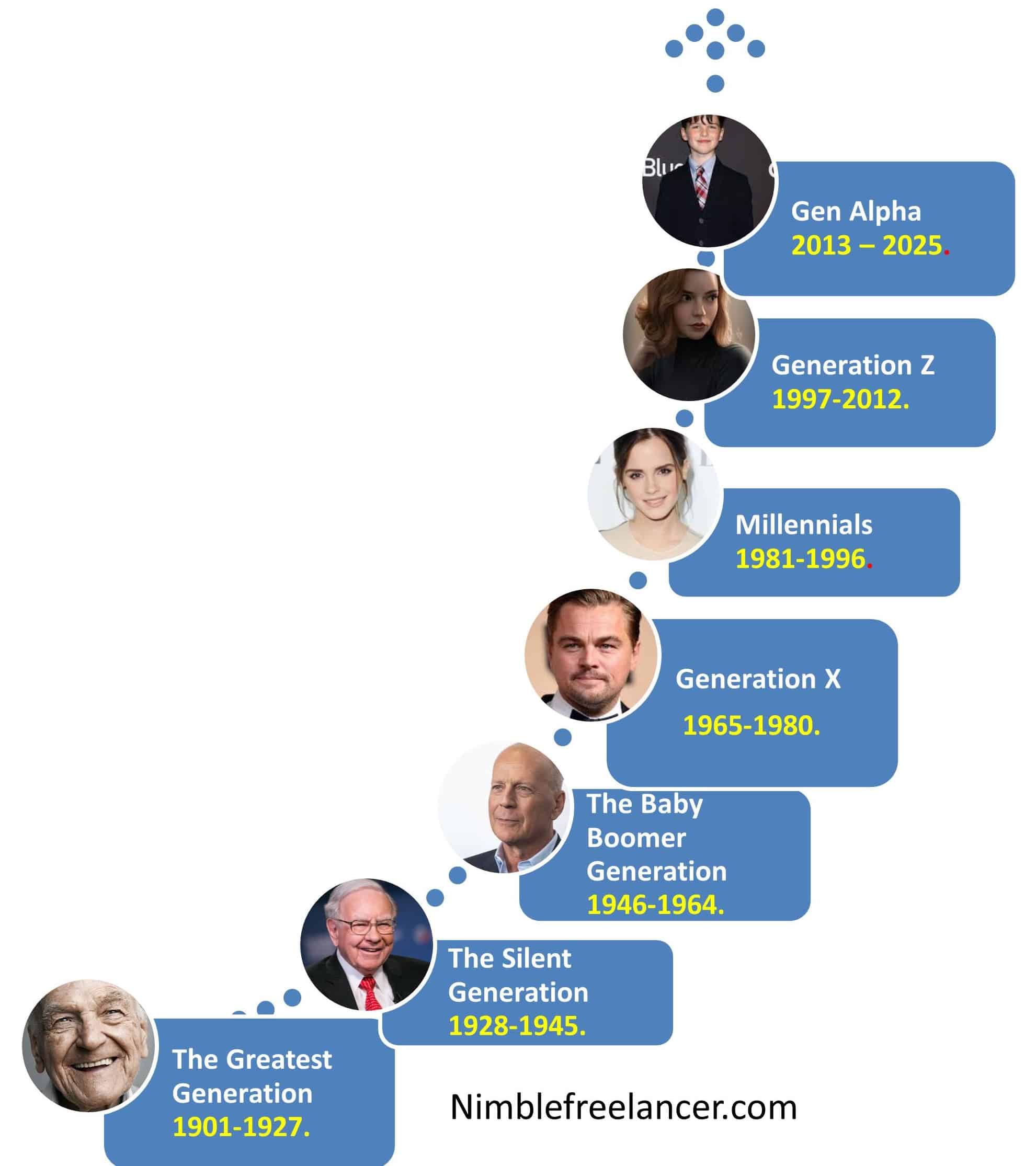Generations represent distinct demographic cohorts shaped by their unique socio-cultural, economic, and political experiences. From the Silent Generation and Baby Boomers to Generation X, Millennials, and Generation Z, each group carries its values, beliefs, and worldviews. These generational delineations help researchers, marketers, and policymakers understand societies’ evolving needs and characteristics. Over time, as each generation matures, they leave an indelible mark on culture, technology, and global progress.
What Years are Generation X?
Generation X represents generations born between 1965 and 1980. However, we should take the year range roughly because Generation X is usually born between the mid-1960s and early 1980s.
Generation X, often abbreviated as Gen X, represents a distinct demographic that succeeded the baby boomers and came before the Millennials. Birth years defining this group typically range from the mid-1960s to the early 1980s, meaning those born between 1965 and 1984 are generally considered Gen Xers. Based on the U.S. Census data from 2019, there were about 65.2 million people from this generation in the United States. A fascinating aspect is that most Gen Xers are offspring of the Silent Generation and the early baby boomers, and they, in turn, frequently became the parents of Millennials and Generation Z.
Based on the most common classification, generation names are:
- The Greatest Generation – born 1901-1927.
- The Silent Generation – born 1928-1945.
- The Baby Boomer Generation – born 1946-1964.
- Generation X – born 1965-1980.
- Millennials – born 1981-1996.
- Generation Z – born 1997-2012.
- Gen Alpha – born 2013 – 2025.

In the 1970s and 1980s, Generation X witnessed substantial societal shifts. They earned the moniker “latchkey generation” because many returned to vacant homes after school, a phenomenon precipitated by rising divorce rates and increased maternal workforce participation before the popularization of external childcare services. This generation’s youth and early adulthood in the 1980s and 1990s led them to be labeled as the “MTV Generation,” hinting at their affinity with the revolutionary music video channel of the time.
However, it wasn’t all glamour for Gen X, as some societal portrayals painted them as slackers, cynical, or disconnected. The cultural milieu of their formative years was rich, with diverse musical genres like punk, post-punk, heavy metal, grunge, and grindcore playing a significant role in shaping their identities. The film industry, too, through franchise mega-sequels and a surge in independent cinema, left an indelible mark on them. Additionally, the inception of video games as a mainstream form of entertainment began with this generation.
On the global stage, Gen Xers in Eastern Bloc nations underwent the transformative phase of moving from communism to capitalism. Meanwhile, in much of the Western hemisphere, their years were marked by conservative ideologies and a tilt toward free market economies. As they navigate the early decades of the 21st century, studies portray Gen Xers as contented individuals who have successfully struck a work-life balance. Their contributions to the workforce are commendable, with many recognizing them as entrepreneurial and broadly productive.
- Facebook Ads to Get Followers! - December 27, 2024
- ClickUp vs. Slack - December 20, 2024
- Mastering E-Commerce Analytics: A Blueprint for Success





